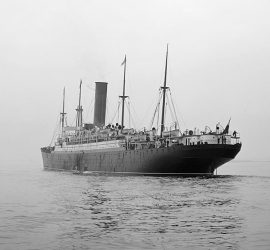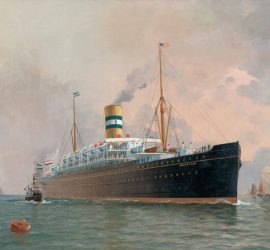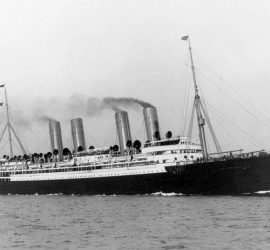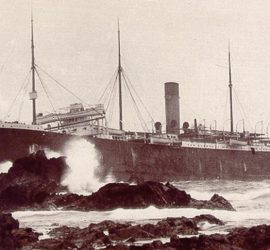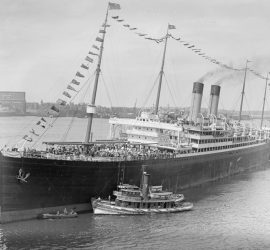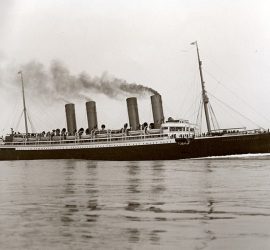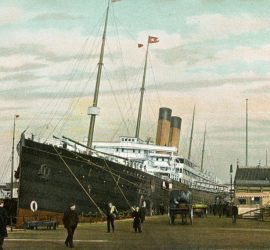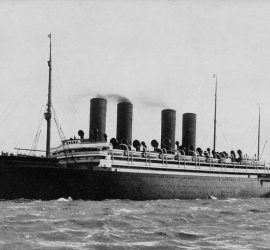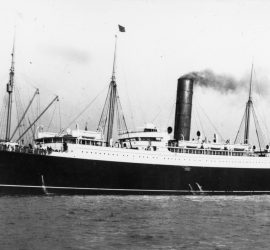1900 – 1925 / A large yet modest ship in the Cunard fleet at the time, the Saxonia was a workhorse that remained with the company until her scrapping in 1925.
1900s
1900 – 1947 / Also known as Stockholm (I), Solglimt and Sonderburg / Launched as the Holland-America Line’s largest ship thus far, the Potsdam would see a long career of nearly 50 years. She inaugurated the Swedish American Line as the first Stockholm, and was later converted into a whale factory ship.
1900 – 1925 / Also known as Victoria Luise and Hansa / An early German speed champion, the Deutschland suffered technical issues which affected her popularity. Having been used as a cruise ship in the years prior to World War I, she was eventually sent to the breakers.
1901 – 1942 / A combined passenger-cargo vessel, the Suevic was not the most glamorous of ships. However, her place in maritime history was cemented by the remarkable salvage operation that saved her career when she ran aground in 1907.
1901 – 1928 / White Star Line’s second Celtic was the first of the company’s ‘Big Four’ quartet and the world’s largest ship thus far. Having served in World War I, she ran aground in 1928 and was declared a total loss.
1901 – 1923 / A true German greyhound, the Kronprinz Wilhelm was one of the fastest ships of her time. Serving as an armed merchant cruiser in World War I, she spent eight successful months as a raider. Seized by the US in 1917, she served as a troopship and was sent to the breakers a few years after the armistice.
1902 – 1915 / An unremarkable cargo-passenger ship, this Leyland liner would become most known for the role she played on the night that the Titanic went down. In 1915, she was torpedoed and sunk in the Mediterranean.
1903 – 1932 / As the second vessel of White Star Line’s ‘Big Four’ quartet, the Cedric saw a successful career which included wartime service as an armed merchant cruiser.
1903 – 1940 / The Kaiser Wilhelm II managed to set a new record for an eastbound crossing of the North Atlantic, but was interned in the US at the outbreak of World War I. Eventually seized and used as an allied troopship, the ship then languished for almost 20 years after the war, and was in the end sent to the breakers.
1903 – 1918 / Not originally intended as a high-profile vessel, the Cunarder Carpathia entered the history books when she dashed through the night to pick up survivors from the sunken Titanic. She was torpedoed and sunk during World War I, while still in civilian service.

